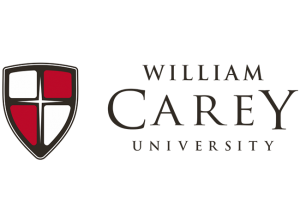 The records of time are kept by historians of today in subjects categorized by distinct and competitive professional fields. Researchers, educators, curators, and analysts interpret the past layer by layer, analyzing information and knowledge to shape a successful future for society. An online master’s in history stands as one of the most popular liberal arts degrees offered by today’s accredited universities. The Bureau of Labor Statistics predicts a 6 to 10 percent job growth outlook throughout the next 8 years in careers including archaeology, archiving, anthropology, and analysis. Graduates are prepared to work for not only historical associations, but consulting firms, businesses, government, nonprofits, and more. The median salary for these positions ranged between $48,400 to $62,410 in 2018. While a bachelor’s degree in this field may provide students entry-level jobs, a master’s degree is usually required for most historian positions. Choosing an online master’s in history degree that fits particular academic and professional goals can be the way to apply a passion for research to a connection with the past.
The records of time are kept by historians of today in subjects categorized by distinct and competitive professional fields. Researchers, educators, curators, and analysts interpret the past layer by layer, analyzing information and knowledge to shape a successful future for society. An online master’s in history stands as one of the most popular liberal arts degrees offered by today’s accredited universities. The Bureau of Labor Statistics predicts a 6 to 10 percent job growth outlook throughout the next 8 years in careers including archaeology, archiving, anthropology, and analysis. Graduates are prepared to work for not only historical associations, but consulting firms, businesses, government, nonprofits, and more. The median salary for these positions ranged between $48,400 to $62,410 in 2018. While a bachelor’s degree in this field may provide students entry-level jobs, a master’s degree is usually required for most historian positions. Choosing an online master’s in history degree that fits particular academic and professional goals can be the way to apply a passion for research to a connection with the past.
Through a full survey of 36 online master’s in history programs from 29 regionally accredited colleges, GetEducated has formulated this “Best Buy” list for you. Our list reveals the most affordable options in the United States, with a difference in tuition of up to $19,000. By taking time to read this list, students are preparing themselves for a financially beneficial educational experience.
ARTICLE NAVIGATION: Rankings Table | Career Guide
Average Cost (In-state): ~$17,100
Least Expensive: Fort Hays State University ~ $8,632.50
Most Expensive: Norwich University ~ $27,534.00
Our data-driven research creates a truly reliable system of scientific rankings. There are no fancy formulas here. We meticulously calculate total full-time tuition—including any fees—for the most accurate total cost. Our rankings cannot be bought, and therefore factually showcase the cheapest online master’s in history options in the country. The online history degrees listed above the gray dividing line are official 2020 “Best Buys” and cost less than the national average.
16 Most Affordable Online Master’s in History
| Rank | School / Degree | State | Price | Note |
|---|---|---|---|---|
1 | Fort Hays State University | (KS) | $8,632.50 | All Students |
2 | Missouri State University | (MO) | $8,670.00 | All Students |
3 | Eastern Illinois University | (IL) | $10,515.00 | All Students |
4 | Fitchburg State University | (MA) | $11,310.00 | All Students |
5 | Pittsburg State University | (KS) | $11,700.00 | All Students |
6 | Jacksonville State University | (AL) | $12,000.00 | All Students |
7 | Louisiana Tech University | (LA) | $13,116.00 $22,520.00 | In-State Out-of-State |
8 | University of North Alabama | (AL) | $13,200.00 | All Students |
9 | University of Nebraska at Kearney | (NE) | $13,201.00 $19,861.00 | In-State Out-of-State |
10 |  American Public University System | (WV) | $13,300.00 $11,800.00 | In-State/Out-of-State Military |
11 | Alcorn State University Master of Arts in History 14 | (MS) | $13,365.00 | All Students |
12 | Indiana State University | (IN) | $14,377.00 $18,403.00 | In-State Out-of-State |
13 | Florida International University | (FL) | $14,781.46 $31,161.46 | In-State Out-of-State |
14 | University of Louisiana at Monroe | (LA) | $15,000.00 | All Students |
15 | Sam Houston State University | (TX) | $15,538.50 | All Students |
16 | Jackson State University | (MS) | $16,632.00 | All Students |
| School / Degree | State | Price | Note | |
|---|---|---|---|---|
University of Massachusetts-Boston | (MA) | $17,550.00 | All Students | |
Wayland Baptist University | (TX) | $18,336.00 | All Students | |
Slippery Rock University of Pennsylvania | (PA) | $18,642.00 $20,796.00 | In-State Out-of-State | |
 Southern New Hampshire University | (NH) | $20,841.00 $15,660.00 | In-State/Out-of-State Military | |
 Liberty University | (VA) | $21,236.00 $10,000.00 | In-State/Out-of-State Military | |
University of Memphis | (TN) | $21,351.00 | All Students | |
Citadel Military College of South Carolina | (SC) | $21,510.00 | All Students | |
Stockton University | (NJ) | $23,400.00 | All Students | |
Western Kentucky University | (KY) | $25,452.00 $9,000.00 | In-State/Out-of-State Military | |
Gratz College | (PA) | $26,433.00 | All Students | |
Union Institute & University (Status pending: not enrolling new students) Master of Arts in History and Culture 14 | (OH) | $27,280.00 | All Students | |
Norwich University | (VT) | $27,534.00 | All Students |
14 Options for this program have changed since publication.
Accreditation Note: To qualify for a ranking, a program must be regionally accredited. Additional programmatic accreditation is noted in the rank table.
Rankings Note: These online college rankings are based on a GetEducated Winter/Spring 2020 review of regionally accredited online master’s in history programs. Total cost includes full-time tuition and fees and was valid at the time of collection and specific to the online learning program. School profiles for the online master degree programs in our directory may reflect a slightly different cost based on different editorial update schedules. The published cost is an estimated sticker price for the entire online degree including fees. Actual costs may vary by student. Factors such as transfer credits, prerequisite courses, professional licensing and financial aid availability will affect final cost.
Editorial Note: Online schools do NOT pay to be included in any GetEducated online degree ranking. These rankings are editorially independent, open to any regionally accredited or candidate college that offers a master’s degree that is available at least 80 percent through online learning and that is open to enrollment by the public. If your online college is regionally accredited and not currently reviewed by GetEducated, please contact us for inclusion.
These rankings of the cheapest online schools for history may NOT be re-posted online or reprinted in any format without a license from GetEducated ®. Consumer finance bloggers and writers can contact our editors for a free custom article on the best online master’s in history degrees for use on your website. Our mission: Help consumers GetEducated ® about the best online colleges for cost and credibility.
Why Should You Get an Online Master’s in History?
A master’s degree in history is the standard education for historians, professionals who research, analyze, interpret, and communicate about historical documents. They gather historical information, interpret data, track historical developments, and write reports, articles, and books about history. Some may even present oral presentations, appear in documentaries, and share their historical knowledge with the public.
The top online master’s in history programs provide access to these careers, but graduates gain a wide skillset that can apply to virtually any industry. Communication, analysis, and research skills are needed by organizations that include businesses, non-profits, and government offices, making these degrees all the more valuable.
These degrees not only provide access to excellent careers, they help students understand the past and apply this understanding to the future.
Online History Master’s Degree Program Types
During an online master’s degree in history, you’ll study a variety of historical issues, periods, and concepts. Many take a broad-level approach to history, while others specialize in certain areas. The Master of Arts in History from Southern New Hampshire University, for example, is available in American History, Military History, and Public History. There are also degrees focused on a specific time and place in history, such as the Master of Arts in Holocaust & Genocide Studies from Gratz College.
A master’s degree in history will require at least 30 credit hours of study, which are completed in one to two years. With a full-time class load, some programs can be completed in two semesters (fall and spring), which means about eight months to complete the degree.
Some of these programs have a thesis requirement, which is an in-depth research paper. This type of master’s degree prepares students for a doctoral program, as well as advanced professional careers. There are also applied research options, which prepare students to teach history in a public setting, especially high school.
Courses During an Online Master’s in History
A master’s in history will take a broad look at the subject, including facts, dates, names, and important events. Most consist of core classes, which all students need to take, as well as electives, which can be chosen to fit a student’s interests and career goals.
To better understand the required and elected courses during a top online master’s in history program, let’s look at specific curriculum examples…
Indiana State University – Master of Arts in History
This program starts with three core courses, which encompass 12 credit hours. Students must complete “Historical Research and Methods” and a “Research Seminar,” then select two history classes from three options: United States, European, or world history. Students then select two classes (6 credits) from “Directed Electives,” which include research and historical methods. Finally, students complete elective courses from a variety of topics such as “Women in History,” “Social Movements in Historical Context,” and “History of Labor in the United States.”
Southern New Hampshire University – Master of Arts in History
Students enrolling in this program can select from three concentrations, allowing the to choose a focus that best suits their interests and career goals.
- American History: This concentration explores the important political, cultural, and social changes in American history. Starting with colonization and flowing to the present day, this concentration includes “Early American Encounters,” “The Gilded Age and Progressive Era,” and “American and the World Wars,” among other classes.
- Military History: Focusing on the major themes of military history, this concentration looks at global military history, the effects of warfare, and the cultural and social impact of conflict. Classes may include “Chinese Imperialism,” “The Russian Revolution,” and “History of Military Thought.”
- Public History: The most technical of these concentrations, this program is focused on the preservation of historical artifacts. While students study historical events, they also complete classes such as “Documentary Editing,” “Archival Management,” and “Museum Collection Management.”
Accreditation for Online History Master’s Degrees
Accreditation is an important part of the academic process. To be “accredited” institutions need to be verified by organizations that have been approved by the U.S. Department of Education and the Council for Higher Education Accreditation. Schools receive “institutional accreditation,” which is granted by regional organizations such as the Middle States Commission on Higher Education (MSCHE) and the Southern Association of Colleges and Schools Commission on Colleges (SACSCOC).
All of the programs in our database come from accredited institutions.
Attending an accredited school is important, as it creates greater access to financial aid, especially federal grants and loans. Accreditation also acts as quality control. While each student’s experience is different, accredited schools have been reviewed by major organizations and verified to deliver high-quality educations that meet the most rigorous academic standards.
There is also a system called “programmatic accreditation,” which is granted to a specific program. However, master’s in history degrees do not have programmatic accreditation. Students enrolling in these programs simply need to verify that the school they will attend holds institutional accreditation.
Admission Requirements for a Master’s in History Program
All master’s degrees, including the best online master’s in history, will have rigorous standards for enrollment. The programs represent a high level of academic achievement, so students are expected to meet a variety of requirements before enrollment.
The first step is to complete a bachelor’s degree. While students with various degrees can be accepted into the top online master’s in history programs, a bachelor’s in history, journalism, business, literature, or communication is a common background.
Simply graduating with a bachelor’s degree may not be enough to satisfy the requirements for many programs. Numerous graduate schools require a certain GPA, such as 2.5 or 3.0 on a 4.0 scale. Each program is different, so you’ll need to contact the admissions office for specific details. For example, Missouri State, which offers an online master of arts in history, requires a minimum GPA of 2.75 or higher. However, meeting this mark “is required for admittance but does not guarantee admission.” Students with a 3.0 are “generally preferred.”
Some schools may accept applicants who do not meet the minimum GPA requirements. These students may be accepted on a “probationary,” or “conditional” level, allowing them to enter the program and, with diligence, improve their overall grades. If they maintain strong academic performance, they will then be accepted as an unconditional student.
In addition to a bachelor’s degree and meeting GPA requirements, students need to submit a variety of documents, including a letter of intent, transcripts, and letters of recommendation.
Cost for an Online Master’s in History
The top online master’s in history programs can be extremely affordable, offering the chance to study history without a massive savings account. The price ranges from less than $9,000 to over $27,000, so students should research the cost and make sure the price matches their budget.
The average price for these programs is $17,100. Assuming a two-year study plan, this means students need an average of about $8,550 per year to complete the degrees. With grants, loans, and gifts from non-profit charity organizations, the cost of these degrees is, in most cases, within the budget of most students.
The cheapest online master’s in history comes from Fort Hays State University, which offers thesis and non-thesis options for their Master of Arts in History. Both of these options are available for $8,632.50, and this price is available to all students regardless of their home state.
Overall, if we include the thesis and non-thesis options separately, and consider the different concentrations for various schools, there are 17 different options that are priced at $15,000 or less. (This includes in-state tuition.) Students on a tight budget should have little difficulty finding a program that fits their budget needs.
The pricing can go much higher. Norwich University offers the least-affordable online master’s in history program. The cost for their Master of Arts in History or Military History is $27,534. On a two-year plan, students need $13,767 a year to complete this program.
Licensing & Certification for History Professionals
Most history professionals will not need licensing or certification. Roughly half of all historians work for professional services or the federal government, and these organizations will not require a license. Voluntary certification, while not required, can benefit a career.
Although historians do not need a license, here are a few common licensing or certifications that someone can complete:
Teaching license (high school level): Professionals who teach history in public high schools will need a license through the state. In addition to a master’s in history, teachers will need some formal teaching education.
NAI certification: If you visit a historic site or nature center, you may come across informational signs that describe the area or provide facts and statistics. These are called “interpretive signs.” Historians can become certified in interpretive signs through the National Association of Interpretation. Members of the NAI have worked on interpretive information for museums, parks, historical sites, and gardens.
STEPS: The American Association for State and Local History offers the Standards and Excellence Program for History Organizations (STEPS) credential. This is a self-paced system that allows a history organization to gauge its program against national museum standards. It is recommended for staff working at historical sites and museums of all sizes.
These are just a few of the credential options for historians. As you continue your career, you may find that a focused, specific credential is right for your needs.
Salary & Career Information for Historians
While the education requirements can be large, historians earn decent incomes. However, the expected rate of growth for this career is below the expected growth for all occupations.
The median income for historians in May of 2021 was $63,940 annually. Those working for the federal government have median incomes of $101,910, which is $40,000 more than the second-highest (professional, scientific, and technical services). The top 10% earn over $118,380, so there is potential for a high salary.
While the incomes can be strong, there is limited growth in this profession. The Bureau of Labor Statistics expects the historian occupation to grow by only 4%, which is less than the growth for all other careers (5%). The career is already limited, with only 3,300 in 2021. It will grow to roughly 3,400 by 2031, so available positions could be hard to find.
The District of Columbia has the highest concentration of historians. There are 0.36 historians for every 1,000 jobs, far outpacing the second-highest concentration, which is in Mississippi, a state that has 0.1 for every 1,000 jobs.
Next Step in the Education of a Historian
After graduating from the best online master’s in history program, you have the option of either joining the workforce or continuing your education in a doctorate program. Most history professionals do not have a Ph.D. in history, but if you want to teach at the collegiate level, or simply want to advance your expert knowledge on the subject, these programs may be ideal for your needs.
In addition to advancement in academia, a doctorate in history could also help a professional advance in museums and other areas of work.




